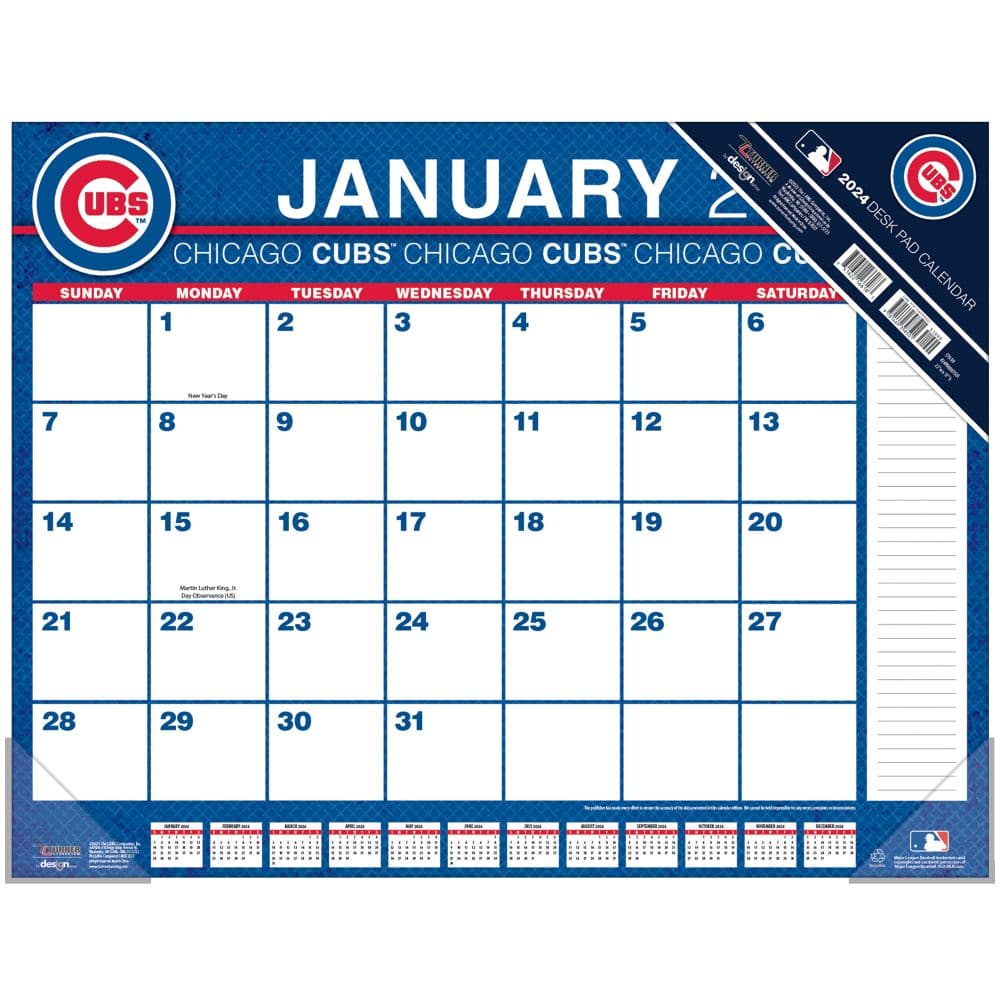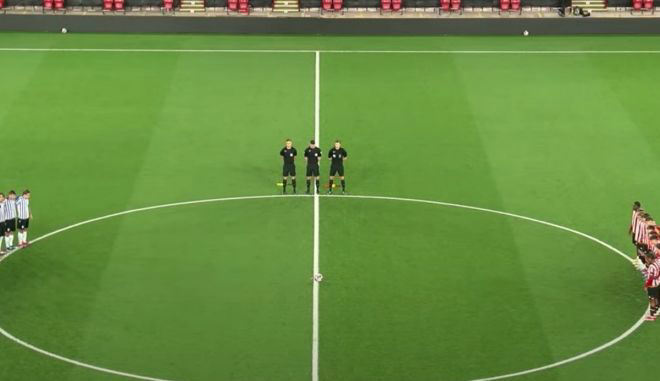2025 Chicago Cubs: Deconstructing Game 16's Successes And Failures

Table of Contents
Offensive Prowess: Analyzing the Cubs' Batting Performance in Game 16
Successful Offensive Strategies:
The Cubs' offensive performance in Game 16 was a mixed bag, showcasing both brilliance and frustrating inconsistency. Several key strategies contributed to their scoring:
-
Exploiting pitcher weaknesses: Seiya Suzuki's ability to consistently make contact with off-speed pitches proved crucial, leading to several key hits. His patience at the plate forced the opposing pitcher into predictable patterns, which the rest of the lineup capitalized on. Similarly, Dansby Swanson's ability to drive pitches on the outer half of the plate resulted in several RBIs. Analyzing the Cubs' approach to each pitcher demonstrated a clear pre-game strategy focused on exploiting specific weaknesses.
-
Effective situational hitting: The Cubs excelled at situational hitting, especially with runners in scoring position. A timely double by Ian Happ with runners on second and third in the 5th inning demonstrated the team's ability to perform under pressure. These clutch hits were a significant factor in building their lead.
-
Power hitting vs. small ball: The Cubs effectively balanced power hitting with small ball tactics. While they did hit several home runs, their ability to execute bunts and steal bases when opportunities presented themselves demonstrated a well-rounded offensive approach. This adaptability kept the opposing team on their toes and prevented them from settling into a comfortable defensive strategy.
Offensive Shortcomings:
Despite the successes, the Cubs' offense also exhibited some significant flaws:
-
Struggles against specific pitching styles: The Cubs' struggles against high velocity fastballs were evident, particularly against the opposing team's closer. Several strikeouts against these pitches demonstrated a need for better adjustment strategies against this type of pitching. This is an area that needs further refinement in future games.
-
Missed opportunities with runners on base: The Cubs left several runners stranded on base, failing to capitalize on scoring opportunities. This inability to consistently bring runners home, even with runners in scoring position, hindered their potential scoring output.
-
Lack of timely hitting: While there were flashes of brilliance, the Cubs lacked consistent timely hitting. Several innings saw promising starts with runners on base, but a lack of clutch hits prevented them from extending their lead and putting the game away earlier.
Defensive Display: Examining the Cubs' Fielding and Pitching Performance
Stellar Defensive Plays:
The Cubs' defense was a highlight of Game 16, featuring several outstanding individual performances:
-
Highlight exceptional plays: Nico Hoerner's diving stop in the 6th inning prevented a potential game-changing run, showcasing his exceptional range and defensive instincts. Similar impressive plays were made by other infielders, highlighting the team's strong defensive foundation. These plays were pivotal in keeping the opposing team’s scoring opportunities limited.
-
Effective pitching strategy: The Cubs' pitching strategy effectively utilized a mix of fastballs and breaking pitches to keep the opposing batters off balance. Strategic pitching changes kept the opposing team from settling into any rhythm at the plate.
-
Strong bullpen performance: The Cubs' bullpen played a crucial role in securing victory. Relievers entered the game at key moments, effectively shutting down the opposing team's attempts at a comeback. This strong relief pitching was instrumental in preserving the lead and closing out the game.
Defensive Mistakes and Areas for Improvement:
Despite the strong overall performance, some areas require attention:
-
Errors leading to runs: A crucial error in the 8th inning led to an unearned run, highlighting the need for consistent focus and execution in the field. This mistake underscores the importance of minimizing errors to maintain a solid defensive performance.
-
Poor communication in the field: Instances of miscommunication between outfielders led to some close calls, indicating a need for improved communication and coordination on the field. Regular drills focusing on communication are necessary to rectify this issue.
-
Vulnerabilities in pitching: While the pitching staff performed well overall, they exhibited vulnerabilities against left-handed batters. This area requires further strategic refinement to better counteract opposing teams' strengths.
Managerial Decisions: Assessing the Impact of Coaching Strategies
Successful Managerial Calls:
Managerial decisions played a key role in the Cubs' victory:
- Successful Managerial Calls: The decision to pinch-hit for Patrick Wisdom in the 7th inning proved crucial, as the replacement hit a game-changing double. This strategic substitution demonstrated an understanding of the game situation and the players' strengths. Such decisions highlight the impact of intelligent management on game outcomes.
Questionable Managerial Decisions:
However, some decisions were less effective:
- Questionable Managerial Decisions: The decision to leave Justin Steele in the game for one more inning, despite showing signs of fatigue, might have contributed to the opposing team's late-inning rally. While risky, the decision to maintain a pitcher who has previously performed well demonstrates the tightrope walk that managers face. This decision could be debated and serves as a valuable lesson in strategic risk assessment.
Conclusion:
Game 16 of the 2025 Chicago Cubs season showcased a team with significant potential but also areas needing improvement. The Cubs' offensive prowess, punctuated by timely hitting and exploiting pitcher weaknesses, was balanced by inconsistencies and missed opportunities. Their defense, while largely strong, suffered from occasional errors and communication breakdowns. Managerial decisions were largely successful, although some questionable calls highlight the complexities of strategic choices during high-pressure moments. Overall, the game revealed a team with a foundation of strength, but with room for growth in several key areas.
Key Takeaways: The Cubs demonstrated a strong offensive and defensive core, but consistency is key. Improving their performance against high-velocity fastballs, minimizing errors, and sharpening communication on the field are crucial steps for future success. Strategic managerial decisions can significantly impact game outcomes, and analyzing both successes and failures is vital for ongoing improvement.
Call to Action: What are your thoughts on the Chicago Cubs' performance in Game 16? Did you agree with the manager's decisions? Share your analysis of the Chicago Cubs' 2025 season and this crucial game in the comments below! Let's continue the conversation about the Cubs' path to success!

Featured Posts
-
 Sabalenka And Gauff Avoid Upsets Cruise To Next Round In Rome
May 13, 2025
Sabalenka And Gauff Avoid Upsets Cruise To Next Round In Rome
May 13, 2025 -
 Promosi Terhad Kredit Cas Rm 800 And Konsert Rentak Elektrik Dengan Tempahan Byd Ev Di Mas 2025 9 15 Mei
May 13, 2025
Promosi Terhad Kredit Cas Rm 800 And Konsert Rentak Elektrik Dengan Tempahan Byd Ev Di Mas 2025 9 15 Mei
May 13, 2025 -
 Sefilnt Gioynaitent I Niki Kai I Atypi Giorti Toy Mpalntok
May 13, 2025
Sefilnt Gioynaitent I Niki Kai I Atypi Giorti Toy Mpalntok
May 13, 2025 -
 The Reawakening Of Putins Arctic Shadow Fleet Military Implications And Strategic Goals
May 13, 2025
The Reawakening Of Putins Arctic Shadow Fleet Military Implications And Strategic Goals
May 13, 2025 -
 Naesta Atalanta Manager Analys Av Potentiella Eftertraedare
May 13, 2025
Naesta Atalanta Manager Analys Av Potentiella Eftertraedare
May 13, 2025
